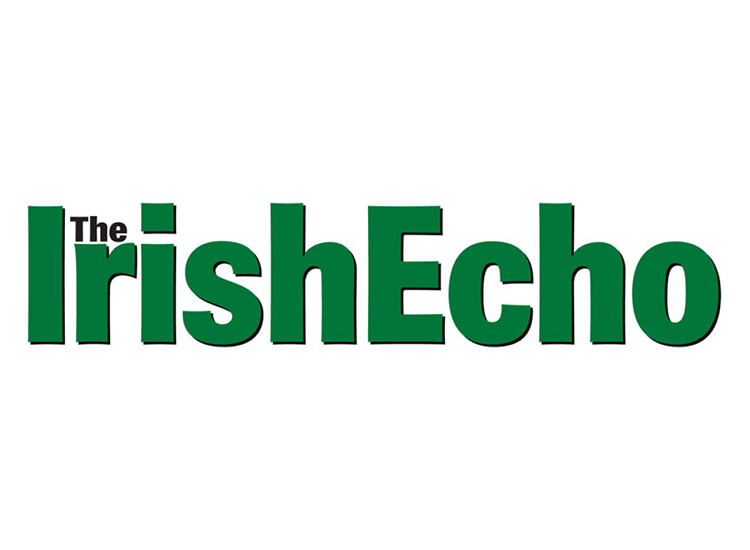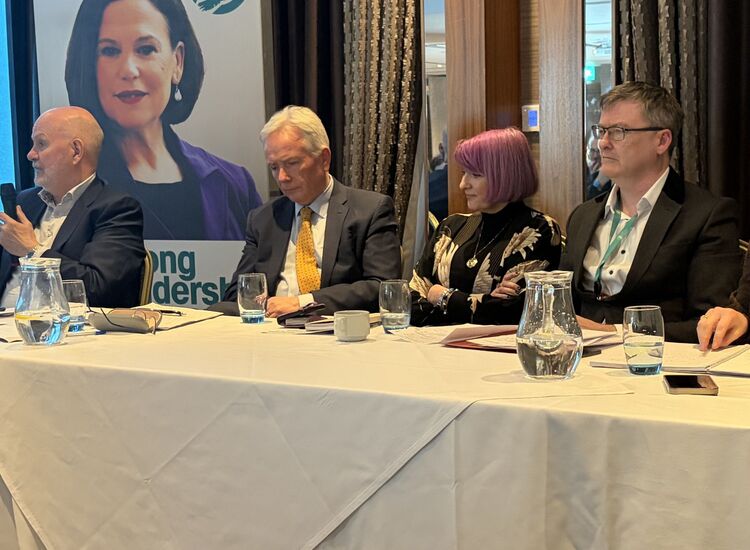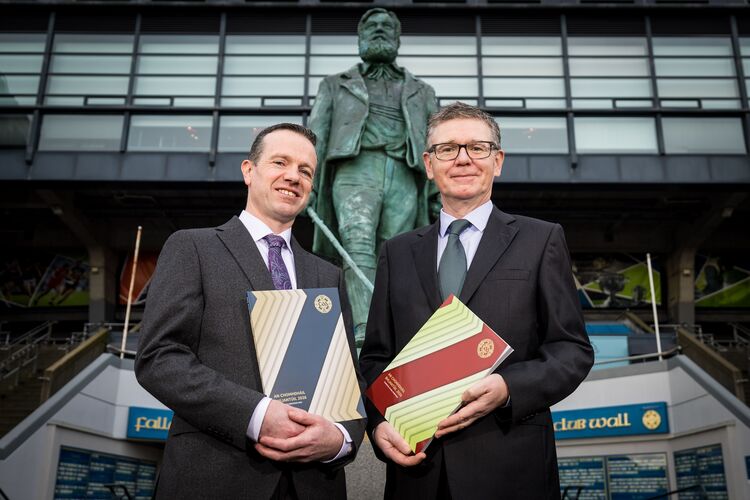U.S. Trade Representative, Robert Lighthizer.
By Irish Echo Staff
Talks between the U.S. and UK on a post-Brexit trade agreement are scheduled to get under way today, Tuesday.
The early negotiations will take place by videoconference due to the Covid-19 pandemic and with the first round of talks expected to last two weeks and further sessions approximately every six weeks, the BBC was reporting.
The report stated that British minister say they will drive a "hard bargain" as they seek to lower tariffs on exports and boost trade in services.
Irish Americans, including the Ancient Order of Hibernians, don't want to see any bargain at all until the post-Brexit position of Northern Ireland is fully resolved.
Back in October, 2018, the AOH stated its belief that it was inappropriate to engage in such talk with the issue of the post-Brexit border in Ireland unresolved, and Britain’s previous commitments under the Good Friday Agreement unfulfilled.
The Hibernians were responding to a letter from U.S. Trade Representative Robert Lighthizer advising Congress of the Trump administration’s intent to pursue new trade deals with the UK. The Hibernians duly wrote Ambassador Lighthizer urging restraint. (Mr. Lighthizer's full name is Robert Emmet Lighthizer).
In the letter, AOH Political Education Chairman Neil F. Cosgrove stated: “As Irish Americans, the AOH strongly objects to the administration pursuing any future trade deals with the United Kingdom until the issue of a British Brexit border in Ireland is resolved and Britain’s obligations under the Good Friday Agreement are addressed.
“Despite numerous promises by Prime Minister May stating their would be no hard border in Ireland, with less than six months until Brexit becomes a reality the United Kingdom has yet to offer a viable solution that precludes such a border.
“A post-Brexit repartitioning of Ireland undermines the substantial progress which has been made in the cause of lasting peace since the signing of the U.S. brokered Good Friday Agreement twenty years ago.
“Brexit threatens to destroy the bridges which Good Friday has built across the centuries deep chasms of mistrust and replace them with a hard border both physical and psychological. The people of Northern Ireland rejected Brexit in a clear democratic mandate, yet now face a future in which they will disproportionately bear the negative consequences of Britain’s EU withdrawal. Britain’s failure to date to deliver on its promise to avoid a hard border should not be encouraged with the prospect of a U.S. trade deal.
“Secondly, in pursuing any trade deal America would be prudent to examine the integrity of the perspective partner and their history in honoring prior commitments.
“Two decades on, the British government has yet to honor many of its commitments under the Good Friday Agreement. There has been no progress made on the issues of justice for the victims of the legacy of the troubles, a Bill of Rights for the people of Northern Ireland, or support for those wishing to express their identity through the medium of the Irish language.
“This failure of progress comes despite pledges made by the United Kingdom in internationally recognized signed treaty. The fact that the current government of Prime Minister May is tenuously propped up by ten seats of Northern Ireland’s Democratic Unionist Party (DUP), the only Northern Ireland Party to not sign the Good Friday Agreement, reduces Britain’s Good Friday commitment to govern with ‘rigorous impartiality’ to political farce.
“The cynical covenant which Ms. May has struck with the DUP is the raison d’etre as to why there is still no agreement on Brexit and a looming crisis in Ireland.
“Does the U.S. really wish to engage in expanded trade relationships with a partner whose dedication to fulfilling its obligations are so easily made redundant to political expediency?
“The Ancient Order of Hibernians believe this is the wrong time for the U.S. to reward British indifference in Ireland with the prospect of a trade deal.
“A clear and unambiguous message must be sent that America will not engage in new agreements with the United Kingdom unless Britain honors its current pledge that there will be no British border in Ireland and makes tangible progress toward fulfilling its outstanding Good Friday Agreement commitments. As a leader in justice as well as in trade, America must send a strong signal that it expects it trade partners to honor their commitments and shall hold them accountable.”
Back in 2018, the AOH stated its belief that it was the wrong time for the U.S. to reward British indifference in Ireland.
Going on twenty months later time is yet a critical element in more ways than one.
Reported the BBC: "Although US President Donald Trump has said he hopes to negotiate a quick deal, international trade agreements typically take many years to complete.
"The UK government has estimated that eliminating tariffs and reducing other trade barriers with the US could boost the economy by between 0.07% and 0.16% over the next 15 years, depending on the exact terms.
"But critics of Brexit say improved terms with the US cannot compensate for a more economically distant relationship with the EU, with whom the UK is negotiating a new trading relationship after its exit on 31 January."
That more distant relationship would imply a more distant relationship between the UK and Republic of Ireland which is currently the UK's sixth largest trading partner behind only the U.S., Germany, Netherlands, France and China.
The BBC reported that the first round of discussions, which have been delayed for several weeks due to the coronavirus outbreak, will cover trade in goods and services, digital trade, two-way investment and support for small and medium-sized businesses.
The report added that while the EU remains the UK's largest trading partner, total exports to the U.S. in 2018 were worth more than twice the amount of any other single country.
That said, the post-Brexit European Union will be comprised of 27 countries, Ireland among them.








